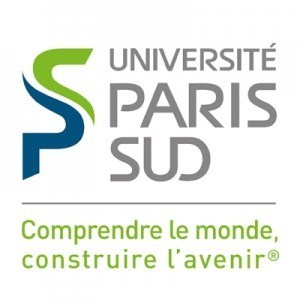Photos of university
The Master’s degree in Cell and Stem Cell Biology at Sorbonne University offers an in-depth exploration of the fundamental mechanisms that govern cell function, differentiation, and development. This comprehensive program is designed for students passionate about advancing their understanding of cellular processes and their applications in medicine, biotechnology, and research. Throughout the course, students will acquire a solid foundation in cell biology, molecular biology, genetics, and stem cell science, enabling them to analyze and interpret complex biological data critically. The program emphasizes both theoretical knowledge and practical skills, providing hands-on experience through laboratory work, research projects, and internships in cutting-edge research facilities. Students will learn about stem cell biology, regenerative medicine, ethical issues related to stem cell research, and emerging techniques such as gene editing and tissue engineering. The curriculum is structured to foster a multidisciplinary approach, integrating biological sciences with bioinformatics and technological innovations, preparing graduates for careers in academia, clinical research, biotech industries, or healthcare. Throughout the program, students will engage with expert faculty members and collaborate with research teams working on the latest advancements in cellular and regenerative medicine. The program also offers opportunities for international exchanges and participation in scientific conferences, enhancing students’ professional networks and global outlook. Graduates of this Master’s program will be equipped with the vital skills necessary to contribute to innovative research and develop new therapies aimed at treating various diseases, including neurodegenerative disorders, cancers, and degenerative conditions. With its rigorous curriculum, state-of-the-art facilities, and strong ties to the scientific community, Sorbonne University’s Cell and Stem Cell Biology Master’s program provides an ideal environment for aspiring scientists committed to making significant impacts in the life sciences and healthcare sectors.
The International Master programme relies on existing master programmes in each partner universities:
- Master of Sciences in Molecular and Cellular Biology at UPMC
- Master of Science in Molecular Medicine at Erasmus Medical Center
- Master of Sciences in Neurosciences at Universitat de Barcelona
The 2-year program is intended to educate the best students of the new generation to become researchers who in forthcoming years will achieve further advancement of basic research and/or clinical (translational) medical research in the field of Cell Biology and Stem Cell Biology. The requirements for the International Master include the successful completion of several core courses (in either of the three partner universities) and the undertaking of two original laboratory research projects. A 6-month period of mobility is included. The core courses provide the basic intellectual and technical knowledge, and establish the important framework (the formulation of hypotheses) necessary for development of a research proposal and subsequent laboratory research.
Courses
Plenary lectures, scientific conferences, theoretical and practical workshops
Theoretical training
Oral presentation and written reports of scientific articles
Oral and written presentation of a research proposal
Research practice in the field of cell biology and stem cell biology
During the laboratory period the students develop their technical skills and test their hypotheses. They learn the principles of performing well-controlled experiments and interpretation, and presentation and publication of results.
Knowledge and skills acquired during the programme
- Keeping up-to-date with knowledge in the international scientific community.
- Applying knowledge to understanding the normal and pathological modifications of cell functions, the relationships that exist between cells and the interactions between cells and their environment.
- Understanding the processes for cell proliferation, death, differentiation and regeneration of cells, as well as cancer, hereditary and neurodegenerative diseases.
- Understanding therapeutic applications for working with cells.
- Developing critical reasoning and problem-solving related to cell and stem cell biology.
- Communicating knowledge
- Entering the research world with the basic tools needed to develop fundamental and clinical applications.
- Systematically integrating the main cross-curricular skills (time management, decision-taking, problem-solving, knowledge updating, etc.) and applying them to research activities.
- Respecting ethics and intellectual integrity.
- Working and interacting with professionals from other fields related to biology.
Languages used for the programme
- English (UPMC, UB and Erasmus MC)
- Course of French as a foreign language (open to foreign students at UPMC)
Admission
In master 1 (students from UPMC and Erasmus Medical Center):
Three-year bachelor’s degree in Biology, Biochemistry, Biotechnology, Medicine, Veterinary Medicine and Pharmacy or equivalent science and health science qualifications.
In master 2 (students from UPMC, Erasmus Medical Center and Universitat de Barcelona):
Four-year degree in Biology, Biochemistry, Biotechnology, Medicine, Veterinary Medicine and Pharmacy.
In the case of a degree in another area of knowledge, the student may also be admitted once the pedagogic team has studied the possibility of validating the previous academic experience.
Enclose all details concerning the level of academic formation in cell biology / biochemistry with certified copies of your academic results from your host university.
Include a letter explaining your motivation and expectations.
If you already have a laboratory experience, indicate the name and full address of referent scientists.
Include reference letter(s).
The financing options for the Cell and Stem Cell Biology program at Sorbonne University encompass a variety of funding sources designed to support both domestic and international students throughout their academic journey. Tuition fees are established by the university and are subject to change annually, with detailed fee structures available on the official Sorbonne University website. Graduate students often benefit from several scholarship opportunities, including governmental grants, university-specific scholarships, and external funding from research institutions or private foundations dedicated to scientific excellence and innovation.
Students enrolled in this program may also have access to financial aid and student loans, which are facilitated through French national and European funding agencies. International students are advised to explore scholarship programs offered by their home countries as well as European Union initiatives that promote exchange and mobility within the scientific community. Research assistantships and teaching assistant positions frequently provide stipends, reducing the financial burden while offering practical experience in the field.
Furthermore, some students may seek support through participation in funded research projects or collaborations with biotechnological companies and research organizations, which sometimes include stipends or grants as part of their partnerships. External funding opportunities, such as Erasmus+ programs, provide additional avenues for financing, especially for students engaged in exchange semesters or joint-degree arrangements.
The university also offers guidance and counseling services to help students identify suitable funding options and assist with the application process. It is recommended that prospective students contact the Sorbonne University financial aid office or consult their official website for updated details on available scholarships, grants, and other financial support mechanisms specific to the Cell and Stem Cell Biology program. Overall, students are encouraged to explore all available resources early in their academic planning to ensure adequate financial preparation and to make their study experience at Sorbonne University as accessible and enriching as possible.
The Master’s degree in Cell and Stem Cell Biology at Sorbonne University offers a comprehensive program designed to provide students with an in-depth understanding of the fundamental principles of cell biology, with a special emphasis on stem cell research and applications. This program is tailored for students interested in pursuing careers in biomedical research, clinical applications, or academia, focusing on the intricate mechanisms that govern cellular functions, development, and regeneration. Throughout the curriculum, students explore topics such as cell signaling pathways, genetic regulation, stem cell biology, regenerative medicine, and advanced microscopy techniques. The program combines theoretical lectures with practical laboratory work, enabling students to acquire essential experimental skills and scientific methodologies. Students are also encouraged to participate in research projects, internships, and collaborations with leading laboratories, which facilitate hands-on experience and professional networking. The program aims to foster critical thinking, innovation, and a thorough understanding of current challenges and advancements in cell and stem cell biology. Graduates from this program are well-equipped to contribute to scientific research, pharmaceutical development, or pursue further academic qualifications. The curriculum is delivered by expert faculty members specializing in cell biology, regenerative medicine, and related fields, ensuring that students receive high-quality education grounded in the latest scientific discoveries. The program may also include seminars, guest lectures, and conferences to expose students to the broader scientific community. Upon completion, students earn a Master’s degree that qualifies them for doctoral studies or careers in biomedical research institutions, biotech companies, or healthcare settings. This program aligns with Sorbonne University’s commitment to excellence in science and innovation, preparing the next generation of scientists to address complex biological questions and contribute to advanced medical solutions.





